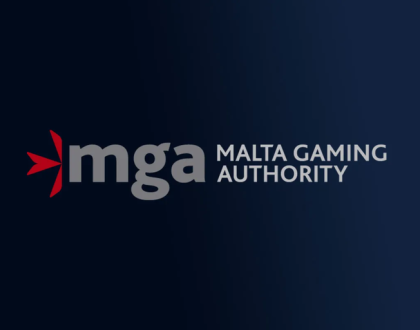Key Financial Practices for Malta’s Business Sector

Most vital to the success of businesses in Malta is the implementation of key financial practices. In this blog post, we will discuss vital financial strategies and principles that can help businesses thrive in Malta’s competitive market. From effective budgeting and cash flow management to strategic investment planning, mastering these financial practices is crucial for sustainable growth and success in the Maltese business sector. Let’s probe into the key financial practices that can make a difference for your business in Malta.
Overview of Malta's Business Environment
Economic Landscape
On the economic front, Malta has experienced robust growth in recent years, driven by key sectors such as tourism, financial services, and manufacturing. The country’s strategic location, skilled workforce, and favorable tax incentives have attracted foreign investment, contributing to its strong economic performance.
Regulatory Framework
An imperative aspect of doing business in Malta is understanding the regulatory framework governing various industries. From company registration to tax compliance, businesses need to navigate through a complex set of regulations to ensure legal conformity. The Maltese government has implemented reforms to streamline processes and enhance transparency for businesses operating in the country.
To successfully operate in Malta’s business environment, companies must proactively stay updated on legislative changes and compliance requirements. Engaging with legal and financial experts can help businesses navigate the regulatory framework effectively, minimizing risks and ensuring long-term success in the Maltese market.
Essential Financial Strategies
Budgeting and Forecasting
Some of the key financial practices that businesses in Malta should adopt include budgeting and forecasting. An important aspect of financial management, budgeting helps organizations plan and allocate resources effectively, while forecasting allows businesses to anticipate future financial trends and make informed decisions.
Cash Flow Management
Some businesses overlook the importance of cash flow management in their financial strategies. Budgeting for cash flow involves tracking the inflow and outflow of cash to ensure that the business has enough liquidity to meet its financial obligations. By managing cash flow effectively, businesses can avoid cash shortages and maintain financial stability.
Strategies for effective cash flow management include maintaining a cash reserve, negotiating favorable payment terms with suppliers, and actively managing accounts receivables to ensure timely payments from customers.
Tax Compliance and Benefits
Understanding Malta's Tax System
Even though Malta’s tax system is considered complex, it offers numerous benefits to businesses. The country has a competitive tax regime and various incentives in place to attract foreign investment.
Maximizing Tax Incentives
On top of the standard benefits, businesses in Malta can further maximize their tax incentives by taking advantage of various schemes such as the Malta Enterprise Grants and Investment Aid. These incentives can significantly reduce a company’s tax liability and promote growth and expansion.
It is crucial for businesses to stay informed about the latest tax regulations and incentives offered by Malta to ensure they are taking full advantage of the benefits available to them. By engaging with tax professionals and staying up to date on changes in the tax system, companies can optimize their financial operations and maximize their tax benefits.
Technological Integration in Finance
Digital Tools and Software Solutions
For businesses in Malta, leveraging digital tools and software solutions is necessary to streamline operations and enhance productivity. From accounting software for managing finances to project management tools for effective task delegation, digital solutions can significantly improve efficiency and accuracy in financial processes.
Cybersecurity Measures
Technological advancements in finance also bring the critical need for stringent cybersecurity measures. Protecting sensitive financial data and customer information is paramount for businesses in Malta to prevent cyber threats and data breaches. Implementing robust cybersecurity protocols, conducting regular security audits, and providing cybersecurity training to employees are crucial steps to safeguard against potential cyber risks.
This includes investing in encryption technologies, firewall systems, multi-factor authentication, and frequent data backups to mitigate the risks posed by cyber threats. Collaborating with cybersecurity experts and staying updated on the latest security trends can further enhance a company’s defense against cyber attacks.
To wrap up
Upon reflecting on the key financial practices for Malta’s business sector, it is evident that implementing robust financial management strategies is crucial for sustainable growth and success. By focusing on efficient cash flow management, insightful financial reporting, and strategic budgeting, businesses in Malta can navigate the economic landscape effectively. Adhering to these practices will not only enhance financial performance but also ensure long-term viability in the competitive market environment.
FAQs
What are the key financial practices for businesses in Malta?
Businesses in Malta should focus on budgeting, cash flow management, tax compliance, and leveraging digital tools for financial efficiency.
Why is cash flow management crucial for businesses in Malta?
Effective cash flow management ensures businesses have enough liquidity to meet financial obligations and sustain operations amidst economic fluctuations.
How can businesses maximize tax benefits in Malta?
By understanding Malta’s tax system and utilizing incentives like Malta Enterprise Grants, businesses can reduce tax liabilities and promote growth.
What role does regulatory compliance play in Malta’s business environment?
Compliance with Malta’s regulatory framework is essential for legal conformity and minimizing operational risks for businesses.
Why is technological integration important for finance in Malta?
Digital tools and cybersecurity measures enhance financial efficiency and protect sensitive data, crucial for businesses operating in Malta.
Recommended Posts

MGA Outsourcing Compliance Guidelines
July 3, 2024

Bragg Gaming Expands with Hard Rock Casino
July 3, 2024

Jelly Entertainment Expands with EveryMatrix
July 3, 2024



